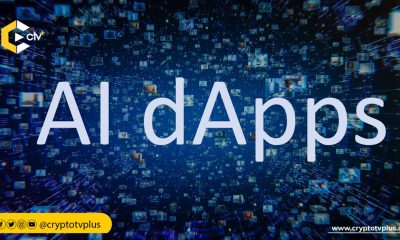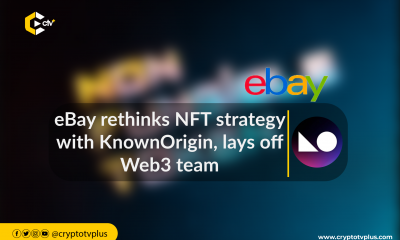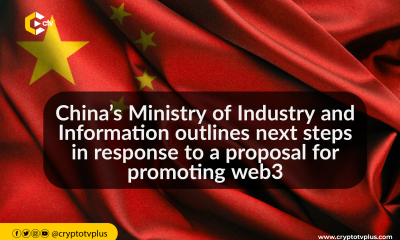FEATURED
Web3 in Africa: what businesses and African government should do

Africa has a large population, which is her most important resource. However, there are various challenges each nation, region, and the entire continent are facing.
According to Emurgo, the majority of these challenges can be tackled with the integration of the Web3 industry into the economic system of the continent.
Web3 refers to the next generation of the internet, which aims to create a decentralized and user-centric online ecosystem. It is often associated with blockchain technology and cryptocurrencies.
Web3 seeks to shift power from centralized entities to individuals, enabling peer-to-peer interactions and eliminating the need for intermediaries in various online activities.
Emurgo is a global blockchain solutions provider and a founding entity of Cardano, one of the leading blockchain platforms. It was established in 2017 with the mission to drive the adoption of blockchain technology and assist businesses and governments in integrating blockchain solutions into their operations.
With a young and increasing population size that is embracing the use of cryptocurrencies, which is one by-product of blockchain technology, Emurgo suggests that projects that are coming into the continent should pay attention to creating equitable wealth and power structures among users in Africa, addressing environmental issues to gain the trust of Africans, and avoiding abuse of communities.
Furthermore, the Web3 firms list these five steps to take to integrate the Web3 industry into the everyday lives of citizens and produce the required prosperity for all.
Strategize with the African Union digital framework
Emurgo said that the continent needs to have a strategy for the implementation of Web3 technologies in Africa that is in sync with the African Union digital strategy.
The African Union (AU) developed a digital strategy called the African Union Digital Transformation Strategy (2020-2030) in 2020. The African Union Digital Transformation Strategy serves as a roadmap for African countries to leverage digital technologies and bridge the digital divide within the continent.
It aims to accelerate economic growth, foster digital inclusion, and improve governance and service delivery through the adoption of digital solutions. It is aligned with the broader African Union Agenda 2063, which outlines the long-term development goals for Africa.
Harmonization of data protection
The second recommendation stated by Emurgo is the need for data protection harmonization. The firm said that it is important for governments to “seek pan-African harmonization of data protection by negotiating consensus on the regulatory goals.”
The fragmentation of data in Africa remains a huge challenge for the continent. This has made it hard for projects and businesses to be efficiently implemented in Africa. Creating a unified system that considers each nation will help to improve data protection as well as availability.
Implement blockchain in data protection
Further into data protection in Africa, the use of blockchain technology to secure the data of Africans should be considered. One of the advantages of blockchain technology which is a huge part of the Web3 industry is its application in securing data stored in it.
With the help of cryptographic encryption, the decentralized nature of blockchains, and immutability, data protection is more efficient on infrastructures built on the blockchain.
Emurgo also added that there should be a decision “about policy options at the intersection of data protection and blockchain technology,” recognizing the preferences of each African nation.
Create Pan-African digital asset framework
The creation of a holistic framework on how digital assets will be developed and deployed in Africa is also important. Emurgo said that this will cover “token classification, including security tokens, representing financial instruments such as electronic money and unregulated tokens.”
Since Africa, with Nigeria, South Africa, Kenya, and Egypt leading the continent, has shown a high affinity for digital assets, it is reasonable for governments to develop a regulatory framework that will guide how these assets are deployed in Africa by foreign and local firms.
Research and Education
There is also a need for massive research and education in the Web3 industry to support the implementation of blockchain technology. The Web3 firm noted that more support should be channeled toward research and education on the continent.
Thanks to events such as the BCAT-Binance Africa 2022, Blockchain Vibes, Blockchain Innovation Program, and Blockchain Day, capacity building for Africans is being improved.
In terms of research and development, Earnathon Foundation is one of the foremost blockchain hubs planned for the African continent, where blockchain research, education, innovation, and development will be done.
Interoperability between systems
Lastly, Emurgo noted that there is a need for “interoperability and harmonized standards” between nations in Africa. Depending on what blockchain or infrastructure a different nation chooses to use, it is important “to enable interconnectivity” between the systems.
Read also;
Spotlight on the Growing Crypto Market in the Middle East and North Africa
























